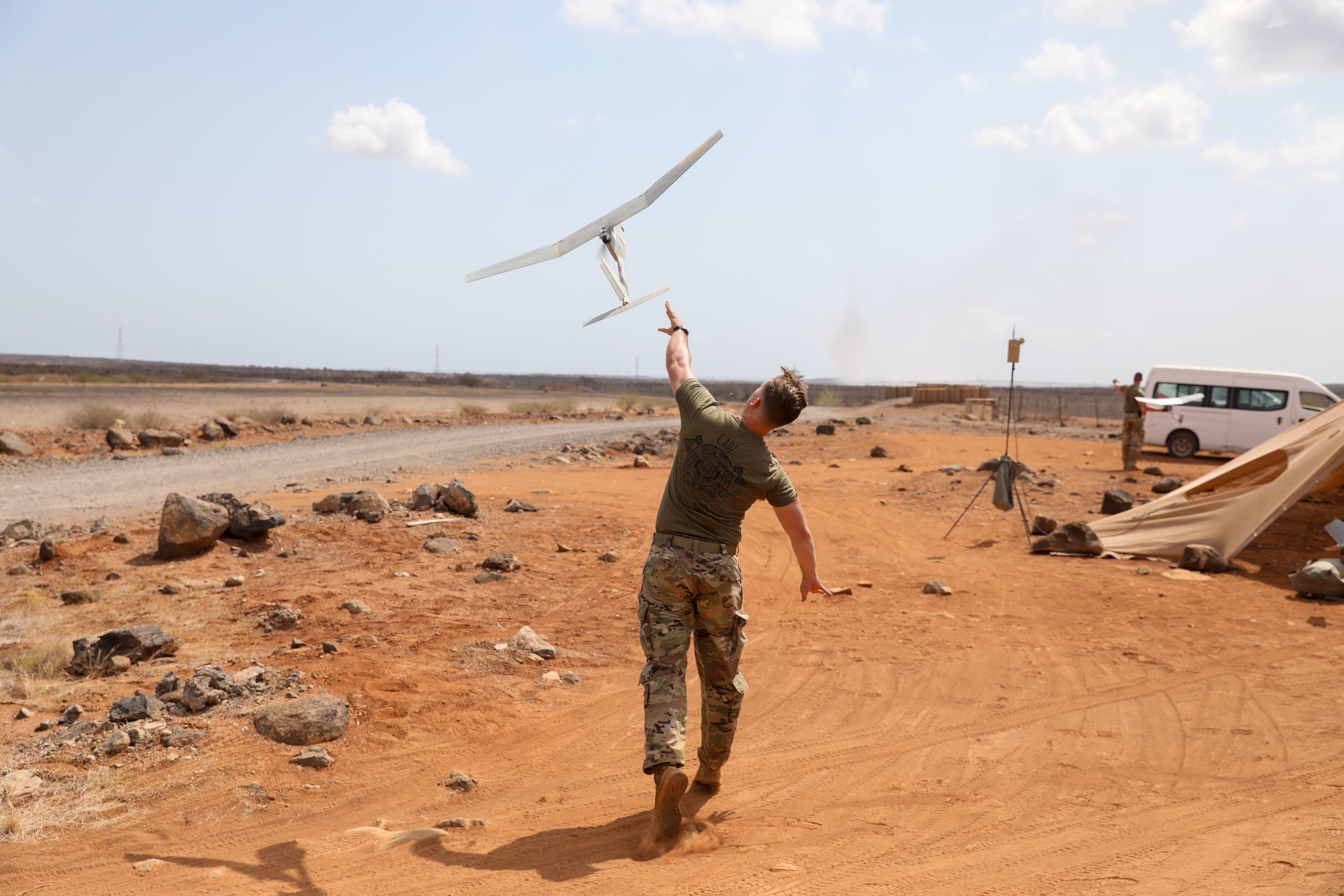TAMPA, Fla. — Special operations experts are looking for ways to untether much of their gear, from moving beyond radio frequencies to looking at institutions such as NASA for logistics lessons in austere locations.
Those were some of the priorities laid out by program managers for various portfolios of U.S. Special Operations Command this week at the Special Operations Forces Industry Conference, hosted by the National Defense Industrial Association in Florida.
In a session with reporters Monday, David Breede, program executive officer for the command’s special reconnaissance office, said SOCOM wants to untether itself from radio frequencies. That move will allow systems to operate on their own in contested communications environments.
“From GPS satellites to command and control, how do I operate completely in an untethered way?” Breede said.
For the past two decades, radio frequencies were open, and it was uncommon for those deployed to encounter extensive jamming or interception. That’s not the case when facing more advanced adversaries like Russia or China, as opposed to terrorist organizations.
Media reports and official statements in recent years noted extensive jamming in Syria near Russian forces.
“It’s tough, it’s hard, it’s not something we can do right now,” Breede said of the untethered concept.
The special reconnaissance group also focuses on adding autonomy to its systems, especially its aerial drones. Those systems are small in order to avoid detection. Breede and his team are looking to at “portable autonomy” to give operators software and control algorithms for a variety of devices; that way, even if jammed through traditional radio frequency channels, they can still function.
But there are trade-offs on small drones.
“It becomes tougher and tougher when you get down to the really small stuff,” Breede said. If designers add more capability on top of what’s already on the platform, he added, then something else usually has to go.
“Whether that’s time on station, whether that’s speed or the other payload onboard,” he explained.
And that’s a major initiative of the head of SOCOM, Gen. Richard Clarke, who said in a separate event Tuesday that the command will divest single-use drones.
The force needed drones for intelligence, surveillance and reconnaissance missions throughout the past two decades. But the next generation of drones must do more, he said.
Getting artificial intelligence on platforms will help, Breede noted, which is in line with Clark’s other major goal: a SOCOM data strategy.
“This absolutely goes back to data,” Clark said. “The No. 1 thing. [Artificial intelligence] is great, but if we don’t get the data and pull that in and [are] able to search it, it’s not worthwhile.”
That goes a long way in helping battlefield commanders see, sense and shoot with the right information, he added.
Certainly the sensing and shooting is key, but what about operators on the ground?
Army Col. Joseph Blanton, program executive officer for the command’s support activity office, echoed Breede’s untethered theme while talking to reporter, saying his team is looking at untethered logistics.
And they’re not reinventing the wheel. While Blanton did not specify specific communications, he did say providing key gear, equipment, materials and resupply in austere locations has been done before.
“So historically you think you have a rucksack, some days of supply on your back; and in some days when that’s gone, you have to get resupplied,” Blanton said.
And that resupply has to come from somewhere. “How do you extend that initial period of time so operators stay forward, untethered from a larger resupply network?” Blanton said.
The colonel said looking at outer space and operations that other agencies do could provide lessons.
“We’re trying to understand that space, untethered logistics, a limited class of supply at the tactical edge,” Blanton said.
Todd South has written about crime, courts, government and the military for multiple publications since 2004 and was named a 2014 Pulitzer finalist for a co-written project on witness intimidation. Todd is a Marine veteran of the Iraq War.





